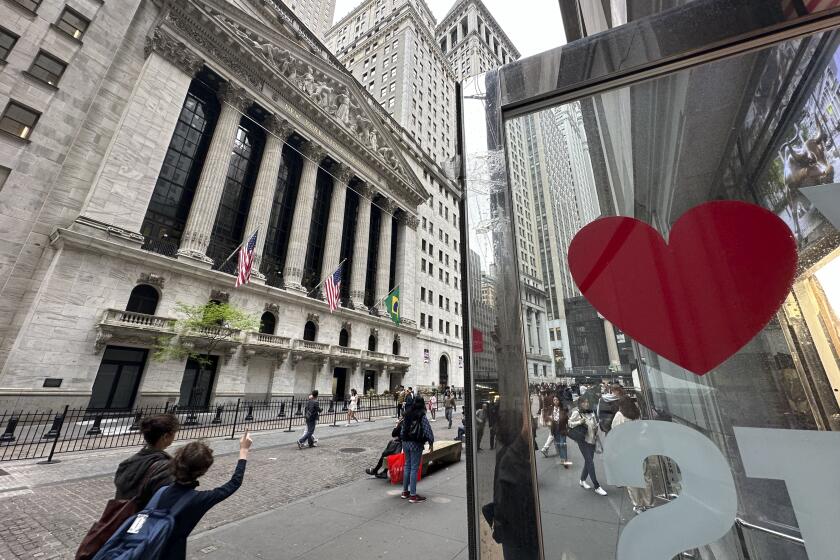Global Crossing Purchase Effort Dies
The two Asian firms hoping to buy Global Crossing Ltd. out of bankruptcy halted talks with the telecommunications company’s lenders Saturday because the two sides couldn’t agree on price.
The failed negotiations with Hutchison Whampoa Ltd. and Singapore Technologies Telemedia, announced by the companies Saturday, leaves Global Crossing without a committed buyer as it moves toward a June 20 bid deadline and a planned auction of the company in early July.
With no purchase agreement from the Asian firms, other potential bidders no longer have a minimum price that they must top to acquire the company.
Bermuda-based Global Crossing listed debts of $12.4 billion and assets of $22.4 billion when it filed for bankruptcy Jan. 28, making it the fourth-largest U.S. bankruptcy.
The company, which spent most of its money building a worldwide fiber-optic network, listed total assets of $15.7 billion on its most recent financial report to the court.
Global Crossing also faces ongoing investigations into its accounting practices from the Securities and Exchange Commission and the FBI.
In January, Hutchison and ST Telemedia pledged to pay $750 million for a 79% stake in Global Crossing, but creditors rejected the bid as too low. Talks aimed at setting a binding offer were extended until midnight Friday, but they collapsed when the two firms refused to increase their bid.
“We thought the original bid was fair and reasonable, but the creditors have a different view,” said Steven Lipin, spokesman for Hutchison. “It was all very amicable ... we’re keeping our options open.”
John Legere, Global Crossing’s chief executive, said he is disappointed that the Hutchison-ST Telemedia deal broke down. But he said the companies may yet make a bid at the auction.
By not forging a deal, Hutchison and ST Telemedia forfeited rights to a $30-million breakup fee, which would have been paid to the firms if they had made a binding offer that was later bettered by a rival bid.
Under a deal approved by the Bankruptcy Court, the two companies will be reimbursed for up to $5 million in expenses associated with their negotiations.
Joe Ryan, an attorney for the committee of unsecured creditors, said the group was steadfast in its demand for a higher price.
“They did make efforts to try to bridge the gap, but on balance, the parties were simply not able to reach agreement,” Ryan said.
The committee, he said, is happy with Global Crossing’s operating improvements and may well end up backing a plan for the company to come out of bankruptcy on its own, with just a cash infusion.
“We don’t think we’re overplaying our hand ... we’re quite optimistic about the company’s future,” Ryan said.
“We’re certainly not entertaining any notions of liquidation at this point,” he said.
Legere has said 60 companies have expressed interest in buying all or part of Global Crossing.
Those said to be interested include private investment firms Texas Pacific Group, Gores Technology Group and Platinum Equity, and telecommunications companies Verizon Communications Inc., BT Group and Deutsche Telekom.
Others, however, are not so optimistic.
Recent bids for other troubled telecommunications firms have not been encouraging. In December, IDT Corp. paid a mere $42.5 million for bankrupt WinStar Communications Inc., a company with nearly $5 billion in assets and $200 million in annual revenue.
The telecommunications industry has also deteriorated further since Global Crossing’s bankruptcy. FLAG Telecom, a rival fiber company, and KPNQwest, an international carrier, both filed for bankruptcy protection in recent weeks.
Legere says he’s not worried.
“It’s hard to know who’s actually going to put a bid on the table,” Legere said. “But the banks and creditors feel they have something that is going to do very well in an auction.”






